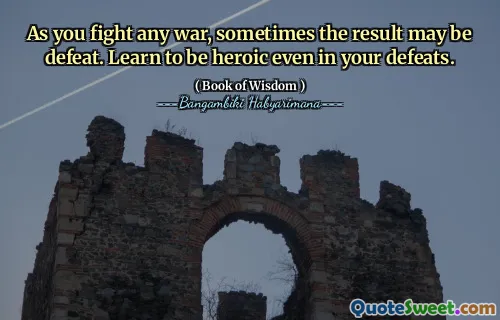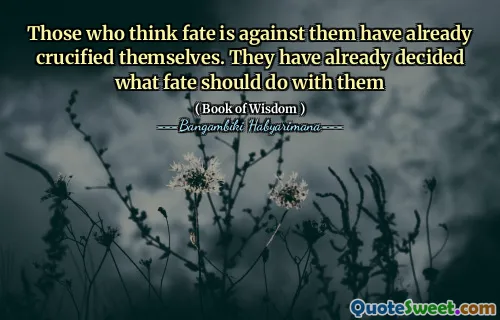
Those who think fate is against them have already crucified themselves. They have already decided what fate should do with them
This quote invites deep introspection about the power of our mindset in shaping our destinies. It suggests that when people perceive fate as an adversary, they essentially relinquish their agency and resign themselves to failure or suffering. The metaphor of crucifixion is poignant, emphasizing the gravity of self-imposed suffering and the irreversible nature of such a mental state. By believing that fate is against them, individuals effectively predetermine their outcomes and render themselves vulnerable to the very hardships they fear.
This reflection encourages taking responsibility for one’s attitude towards life’s challenges. It implies that fate, often seen as an external and uncontrollable force, acquires its meaning and influence from our internal reactions and beliefs. Rather than blaming circumstances, the quote highlights the empowerment that comes from choosing how we interpret and respond to events. In essence, the quote promotes a proactive and resilient outlook, urging us not to become victims of our thoughts but to define our path with courage and optimism.
In a wider philosophical context, this emphasizes the interconnectedness of mind and reality — how perception can shape experience. It challenges the victim mentality and pushes us toward empowerment, reminding us that an adversarial stance toward fate might trap us into a cycle of defeat, whereas embracing our power to decide our responses opens up possibilities for growth and transformation.
(Book of Wisdom) —Bangambiki Habyarimana—







